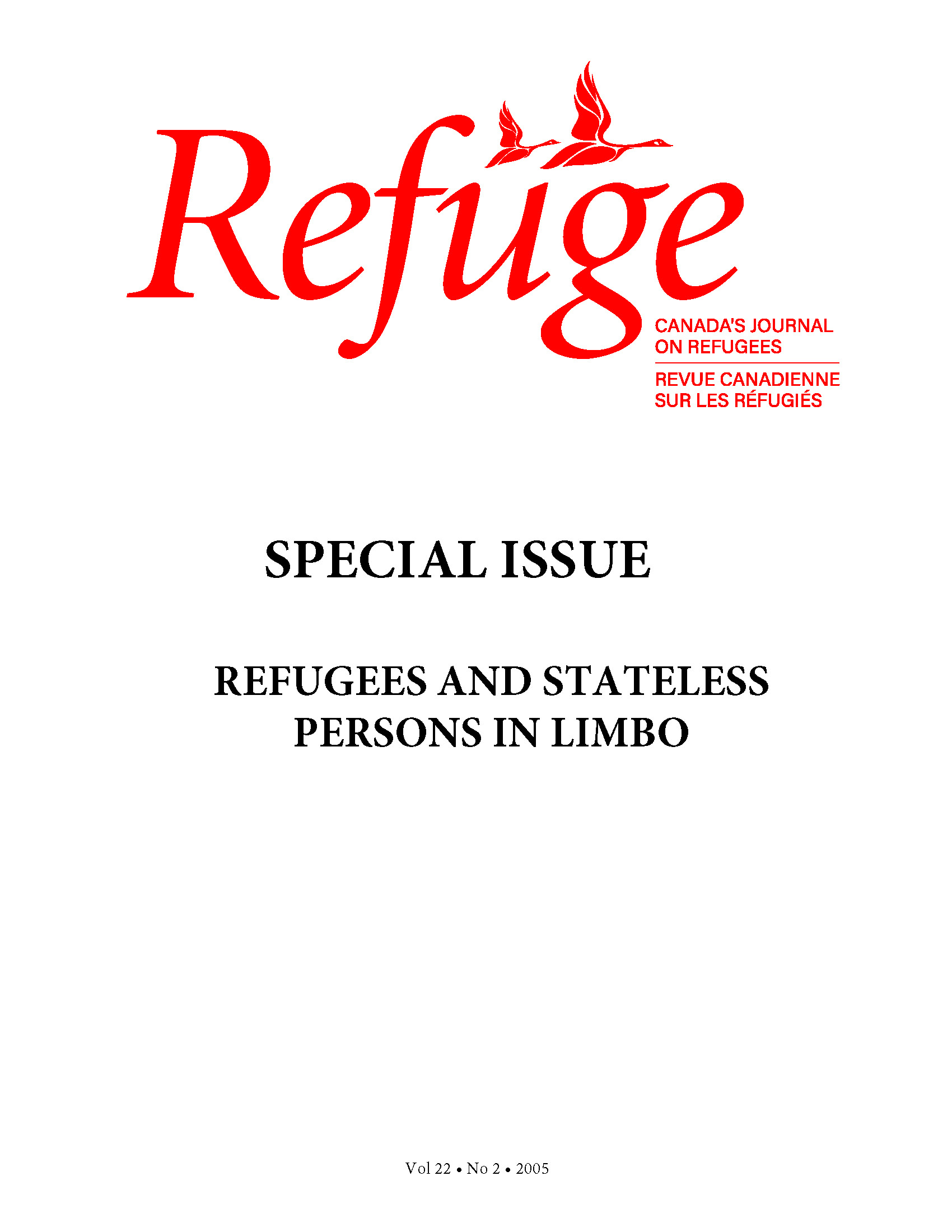The Resettlement of Central American Men in Canada: From Emotional Distress to Successful Integration
DOI:
https://doi.org/10.25071/1920-7336.21335Keywords:
Canada, Central American migrants, refugee men, male migrants, gender, mental health, stress, responsibility, resettlementAbstract
Stress associated with immigration, particularly forced migration, may aggravate men’s emotional distress and reluctance to seek help. This qualitative study of Central American immigrant and refugee men explored the process of coping with distress during resettlement. “Losing the way,” a common theme of resettlement, was frequently a solitary struggle accompanied by anxiety, depression, and/or abusive behaviours. “Finding the way,” grieving socio-cultural losses and seeking help, became possible when participants were able to accept responsibility for their behaviour. The role of “belonging” (support groups, jobs, family obligations) was a key motivating factor in the process of accepting responsibility and personal change.Metrics
Downloads
Published
How to Cite
Issue
Section
License
Copyright (c) 2005 Kevin Pottie, Judith Belle Brown, Samuel Dunn

This work is licensed under a Creative Commons Attribution-NonCommercial 4.0 International License.
Refuge authors retain the copyright over their work, and license it to the general public under the Creative Commons Attribution-Non Commercial License International (CC BY-NC 4.0). This license allows for non-commercial use, reproduction and adaption of the material in any medium or format, with proper attribution. For general information on Creative Commons licences, visit the Creative Commons site. For the CC BY-NC 4.0 license, review the human readable summary.







